Northern Ireland, abortion and Brexit: the three words Christians need to remember
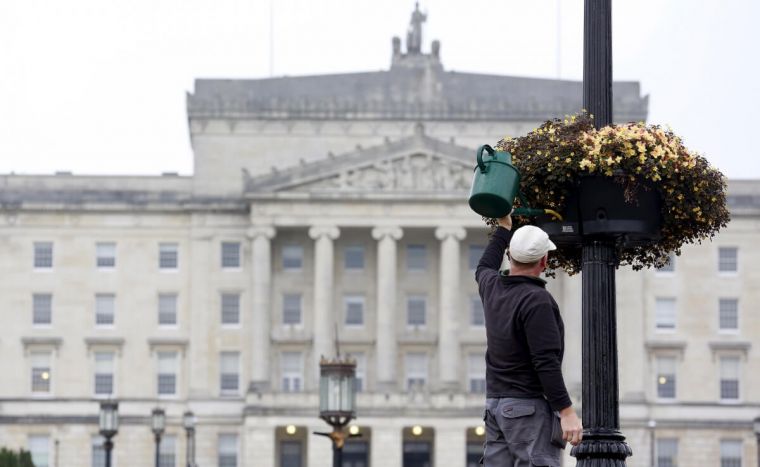
With Brexit looming, these are unprecedented times for the whole of the UK, but perhaps even more so for Northern Ireland, where the picture is complicated by an executive assembly that hasn't sat for two and a half years, and a land border with EU member state the Republic of Ireland that is intertwined with the Good Friday Agreement.
Add into that mix the determination of Westminster MPs to push through hugely unpopular new abortion laws which, in addition to undermining devolution, are about to turn the province from being one of the safest places for the unborn in the British Isles to the least.
David Smyth, the Evangelical Alliance Northern Ireland's public policy lead, speaks to Christian Today about how people in the province feel about these extraordinary circumstances and the three words Christians need to remember as they try to make sense of it all.
CT: What is the feeling among people in Northern Ireland towards the changes being made to the country's abortion laws?
David: When it comes to abortion, the differences between GB and NI go way back and there's 52 years since the Abortion Act came in in GB. In that time, there's been pressure on NI to change its laws and that pressure has come in waves.
There's certainly been a big wave in the last five years. Until relatively recently, the conversation had generally been around 'hard cases', so whether the baby would survive for very long after birth, if it survived the birth at all, and cases involving sexual crime like rape or incest.
The current restrictions strike a very delicate balance between protecting women and protecting their unborn children. So up until now, the law here has meant that a woman could have an abortion where there was a real or permanent threat to her life, not only her physical life but her mental health as well.
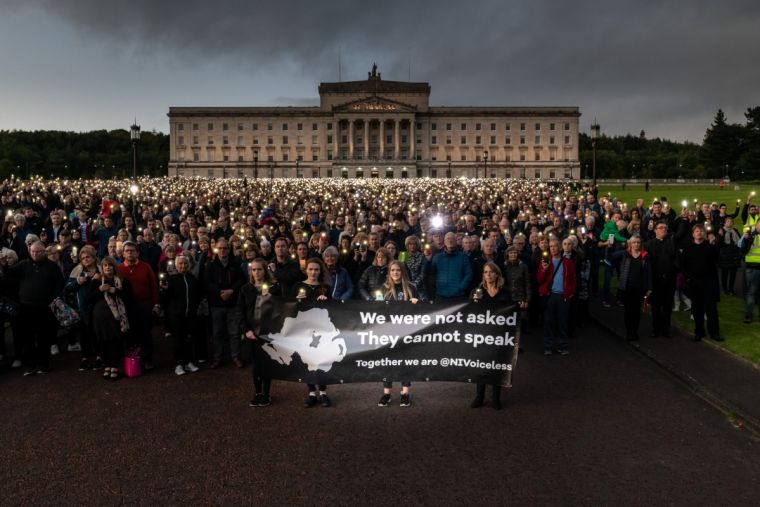
It is quite a narrow interpretation and very few abortions are carried out, but there has been a discretion there for the medical and legal professions to allow abortion in very difficult circumstances.
It's with that context in mind that there has been a lot of frustration, anger and disappointment towards the extent to which Westminster has moved on one of the most contentious ethical and social policy issues in recent times.
Westminster has circumvented devolution - because abortion is a devolved matter - and the frustration lies in the fact that the law change is not careful or limited, but radical so that come 22 October, there will be no legal limit up to at least viability when it comes to abortion in Northern Ireland.
This is not a minor change or a change limited to the hard cases; this is a very radical change that's being imposed on us. That's why there's a real feeling of shock, anger and disbelief.
CT: The suspension of Stormont must add to this frustration?
David: There is a lot of frustration that we've been without our government here in Stormont for the last two and a half years to deal with all manner of things like health, education, infrastructure, welfare and so on.

I think this frustration is manifesting itself most noticeably around this issue of abortion because it's such a contentious issue and there's a hard deadline approaching, much in the same way as we have with Brexit.
Last Friday night, although we weren't directly involved in the organisation, we certainly encouraged a lot of people to come to Stormont to join a protest in opposition to these new laws, and we weren't alone. There were a reported 20,000 people there, standing in front of Stormont in a very dignified silent protest to say: we were not asked and they [the unborn] cannot speak.
We've been campaigning on this issue through Both Lives Matter, of which the EA NI is a founding partner. Importantly, through this campaign, we have sought to reframe the abortion debate away from a tug of war where women only win if the unborn lose their legal protections, and unborn children only win if women lose their rights.
What this campaign says is: let's stand together and advocate for both as far as we can, and let's focus on ensuring better services and more choice for women. And so far, that's had a fantastic response.
CT: In a recent House of Commons debate, Stella Creasy seemed to suggest that the public should not be consulted on changes to the abortion laws. How do people in Northern Ireland feel about that?
David: It's certainly a shocking statement for an MP who is not from NI to make about the most contested social policy change on these shores in the last 50 years. It was strange for an MP to say the public should not be consulted and perhaps reveals something of the larger aim here – the removal of all criminal law limits on abortion across the UK. I think the debate on Monday added to the feeling that we are being circumvented here by the mechanics of Westminster. Many ordinary people simply feel that they are not being consulted when they ought to be.
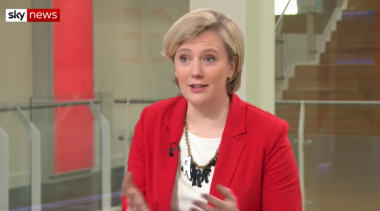
There is a sunset clause in the legislation which means that if an assembly were to be reconstituted on or before 21 October, the legislation would fall and the changes would not be made.
We are under no illusion that if the assembly did come back and the legislation passed at Westminster fell, one of the first bills before the Northern Ireland Executive would be on abortion. If changes were to be made, they would be best made by a local assembly who can better reflect the social culture here. It's also likely that the changes would not be as extreme as those in the legislation at the moment.
CT: There is a possibility of Westminster introducing direct rule in the event of a no deal Brexit. How do people feel about that?
David: There certainly is concern about the possibility of direct rule.
We have to be cognisant of the backdrop of Brexit, the backstop, and the DUP's position. There are a lot of factors at the moment and I think in some way, the legislation might have been a flexing of political muscle in Westminster and a bit of a punishment perhaps for the disproportionate power that a small party holds in Westminster; possibly also for there being no executive here for such a long time. So I think there's a lot of politicking going on.
One concern around direct rule is that if this comes back at any stage, it could be quite a number of years before the appetite or the opportunity for a devolved assembly comes back. If the current government decided that it was in the national interest to step in and implement direct rule around the backstop, or out of security or economic concerns around the Irish border, I don't see an assembly returning any time soon.
It's possible this is just a bit of a threat to get Sinn Fein and the DUP back to the negotiating table and into making an agreement. But it's hard to read exactly what is happening in real time as there are a lot of vested interests and the pulling of people in different directions.
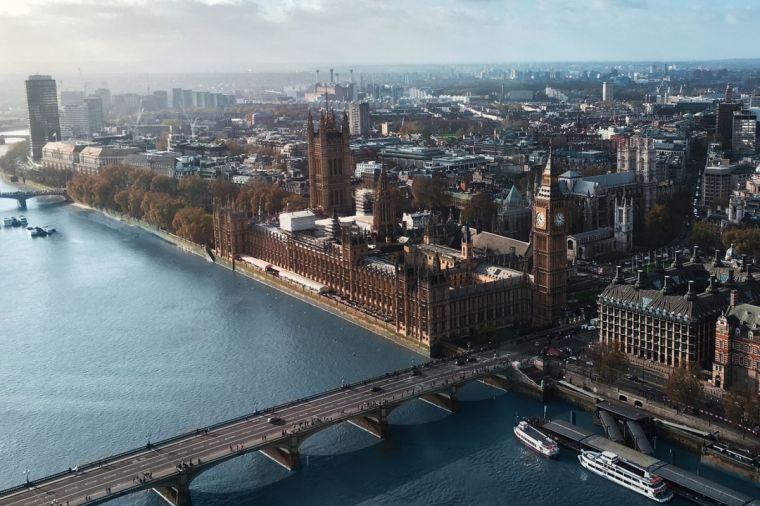
The stated reason, at least, as to why Sinn Fein and the DUP won't agree to come back into power is the Irish Language Act. One of the clear messages from the pro-life movement to both of them is: choose lives over language. We want to see British and Irish lives protected more than the Irish language. They have their red lines around the Irish Language Act but for many people, it's around abortion, it's around lives.
CT: Are people in Northern Ireland feeling as mixed up about Brexit as they are in the rest of the UK?
David: Yes, I think that's fair to say. Politically, the DUP were the only party to campaign for a Leave vote at the time of the 2016 referendum. Most of the other parties were campaigning for Remain and for a few, it was a conscience issue. The referendum result showed that a majority voted Remain.
There is a lot of concern on all sorts of levels, and a lot of confusion as well.
The border runs for over 300 miles across the island and about 35,000 people cross it every day for work. Many people have farms, businesses, family and a daily life that revolves around crossing the border and there is a lot of concern about what Brexit is going to mean when it comes to security, everyday life, nationality, the Good Friday Agreement and the guaranteed rights around that, and the ability to identify as British or Irish or both. The business community, certainly, are fairly unanimous in wanting a deal and seeing a no-deal Brexit on the island of Ireland as a very difficult prospect.
CT: How do people feel about Boris Johnson and how he's handling the Irish question?
David: There's no one perspective among Christians on this issue. Just as it is elsewhere in the UK, there are those who voted Leave who feel that he has been disarmed and frustrated when they just want the Government to get on with Brexit. And there are those who voted Remain who feel anxious about Johnson. It's fairly reflective of other parts in Britain.
CT: How are churches in Northern Ireland responding to concerns over Brexit?
David: It's certainly being talked about in interchurch meetings and councils, and some resources have been produced to help facilitate conversations and study together. But I don't get the sense that Brexit has dramatically affected fellowship, discipleship or church relationships. The differences can be somewhat exaggerated on social media for instance, but on the ground, I don't detect a lot of animosity between those who voted Remain or Leave.
People do feel strongly about it and they feel differently, but the question of national identity has been a big question on the island of Ireland for a long time and in some ways we are sensitive to the issue and used to living with differences and different identities.
It's interesting that last year, the EA NI produced a resource called "Be Reconciled" to coincide with the 20th anniversary of the Good Friday Agreement that actually has a lot that is relevant to a post-Brexit landscape, with the further divisions that are being exposed under the surface.
That resource was designed to help facilitate conversations around reconciliation in light of sectarian divisions and to help those conversations within churches in the language of witness and discipleship.
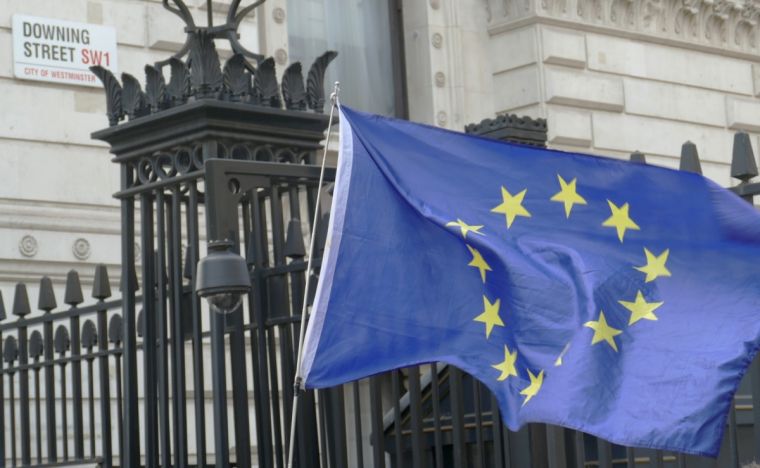
The main point it makes is that the Gospel is the Gospel of reconciliation and we are called to be peacemakers and ambassadors of Christ.
Although it was designed for the Troubles, there is a lot we can apply from that message to the current situation around Brexit.
CT: Is there any concern about a return of the Troubles or the IRA?
David: The dissident threat hasn't really gone away. There have been attacks since the Good Friday Agreement. This year, there was the tragic shooting of journalist Lyra McKee in Derry and even in the last few days there, some improvised devices have been found.
So the dissident threat around the border and for security personnel remains, certainly.
The whole idea of the backstop was to make sure that a hard border was not erected on the island of Ireland. There would have been trade reasons for that, but the Good Friday Agreement and security played into it as well.
There is concern that it could, among a number of other factors, contribute to a new rise in dissident activity or paramilitary organisations - and young people choosing to join them. There is a broader concern around community relations when it comes to Brexit, for sure.
CT: What would you like Christians to be praying for for Northern Ireland?
David: Some of the scenes we have seen in Parliament have been extraordinary by any political standard. It's easy to forget what we know and forget our perspective as Christians. The three words we've been coming back to here at the EA NI are power, presence and purpose.
There is His power and we carry His power in us. That means we should be carrying something different into these situations, both in the way that we speak and how we act. These should be discernibly different.
Then there is presence. He is present in all of this even though it feels like we're in very uncertain times and the foundations are trembling.
In the same vein, the purposes might not be immediately clear but we can trust that there are God's purposes in all of this and that His purposes are good.
We shouldn't lose that perspective. We need to stand on His power, presence and purpose, and be ambassadors of all three of these in what admittedly feels like a very foreign land at the moment.











